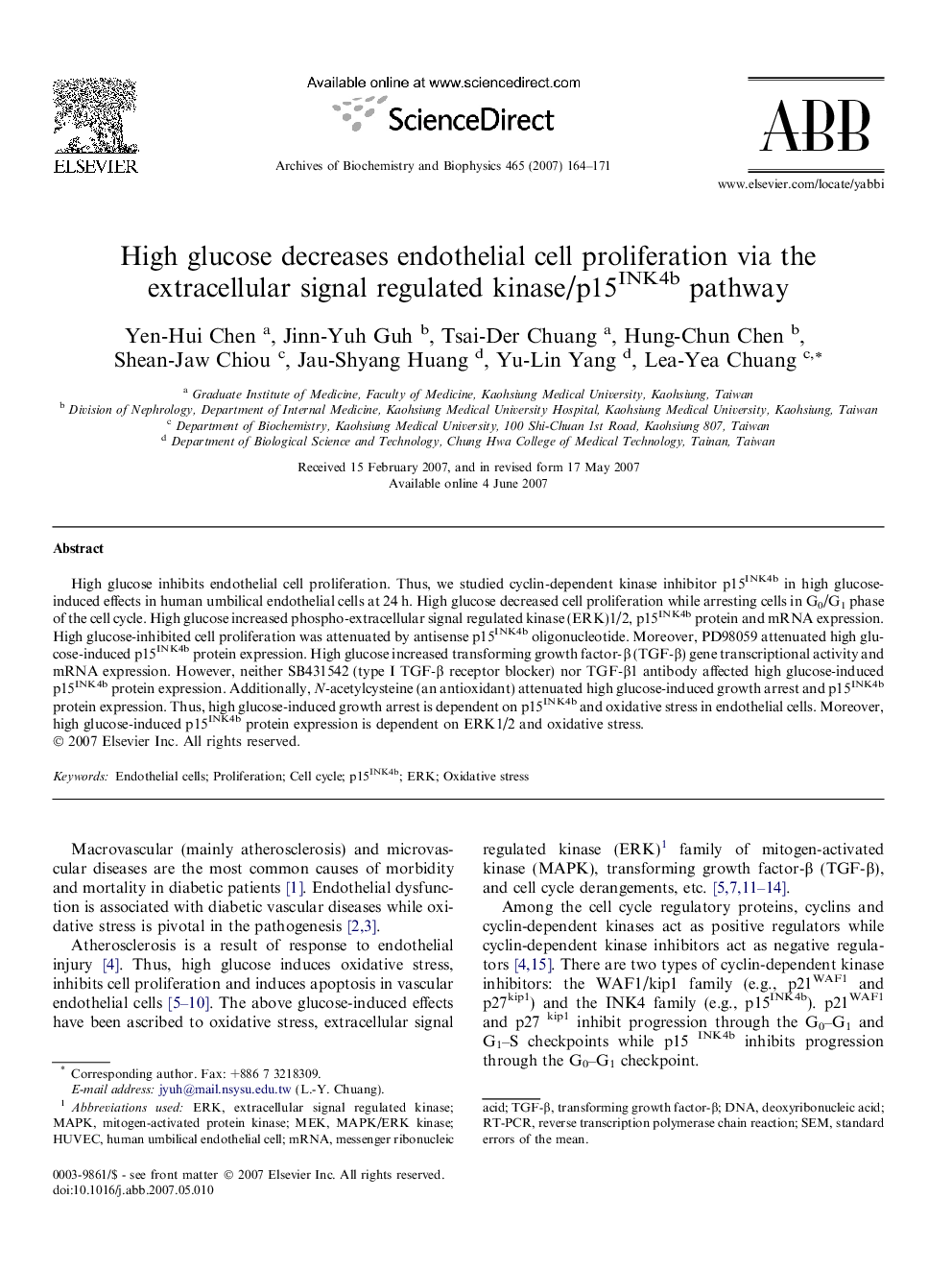| Article ID | Journal | Published Year | Pages | File Type |
|---|---|---|---|---|
| 1927052 | Archives of Biochemistry and Biophysics | 2007 | 8 Pages |
High glucose inhibits endothelial cell proliferation. Thus, we studied cyclin-dependent kinase inhibitor p15INK4b in high glucose-induced effects in human umbilical endothelial cells at 24 h. High glucose decreased cell proliferation while arresting cells in G0/G1 phase of the cell cycle. High glucose increased phospho-extracellular signal regulated kinase (ERK)1/2, p15INK4b protein and mRNA expression. High glucose-inhibited cell proliferation was attenuated by antisense p15INK4b oligonucleotide. Moreover, PD98059 attenuated high glucose-induced p15INK4b protein expression. High glucose increased transforming growth factor-β (TGF-β) gene transcriptional activity and mRNA expression. However, neither SB431542 (type I TGF-β receptor blocker) nor TGF-β1 antibody affected high glucose-induced p15INK4b protein expression. Additionally, N-acetylcysteine (an antioxidant) attenuated high glucose-induced growth arrest and p15INK4b protein expression. Thus, high glucose-induced growth arrest is dependent on p15INK4b and oxidative stress in endothelial cells. Moreover, high glucose-induced p15INK4b protein expression is dependent on ERK1/2 and oxidative stress.
